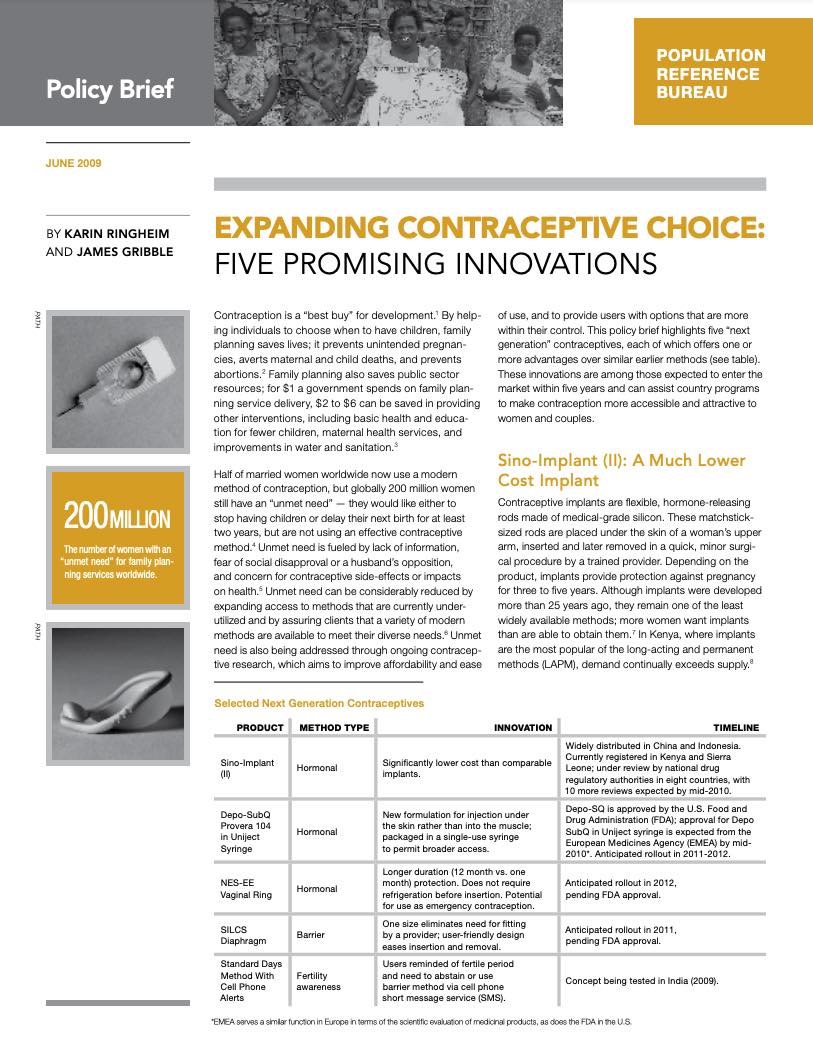
Expanding Contraceptive Choice: Five Promising Innovations
(June 2009) Contraception is a “best buy” for development. By helping individuals to choose when to have children, family planning saves lives; it prevents unintended pregnancies, averts maternal and child deaths, and prevents abortions. Family planning also saves public sector resources; for $1 a government spends on family planning service delivery, $2 to $6 can be saved in providing other interventions, including basic health and education for fewer children, maternal health services, and improvements in water and sanitation.
Half of married women worldwide now use a modern method of contraception, but globally 200 million women still have an “unmet need”—they would like either to stop having children or delay their next birth for at least two years, but are not using an effective contraceptive method. Unmet need is fueled by lack of information, fear of social disapproval or a husband’s opposition, and concern for contraceptive side effects or impacts on health. Unmet need can be considerably reduced by expanding access to methods that are currently underutilized and by assuring clients that a variety of modern methods are available to meet their diverse needs. Unmet need is also being addressed through ongoing contraceptive research, which aims to improve affordability and ease of use, and to provide users with options that are more within their control. This policy brief highlights five “next generation” contraceptives, each of which offers one or more advantages over similar earlier methods. These innovations are among those expected to enter the market within five years and can assist country programs to make contraception more accessible and attractive to women and couples.
Karin Ringheim is senior policy adviser and James Gribble is vice president, International Programs, at the Population Reference Bureau.

 ">
">